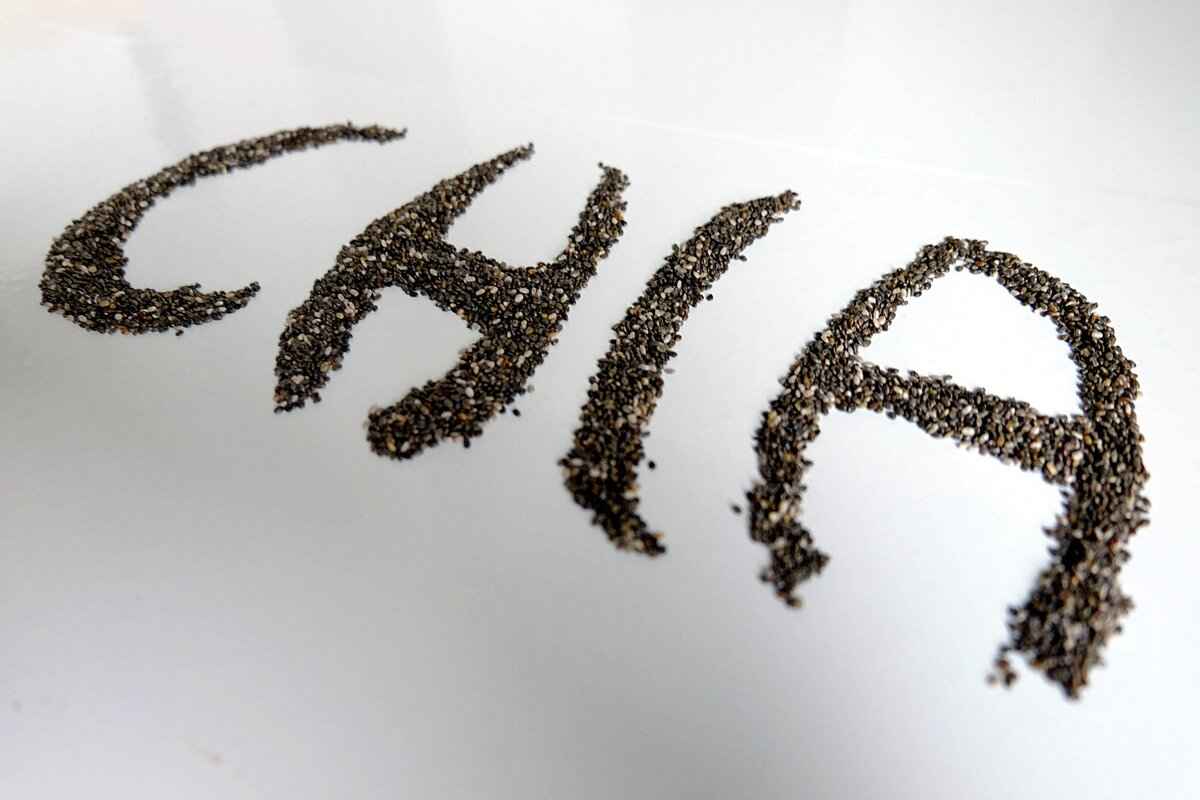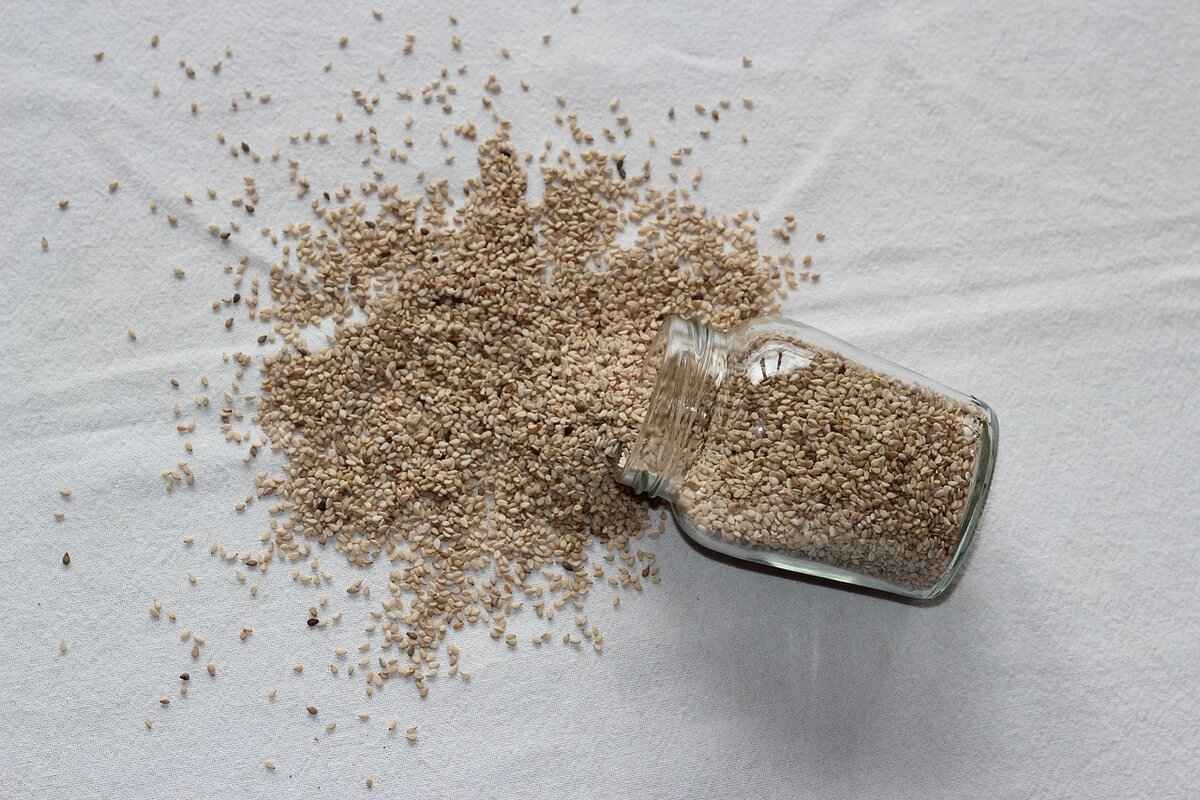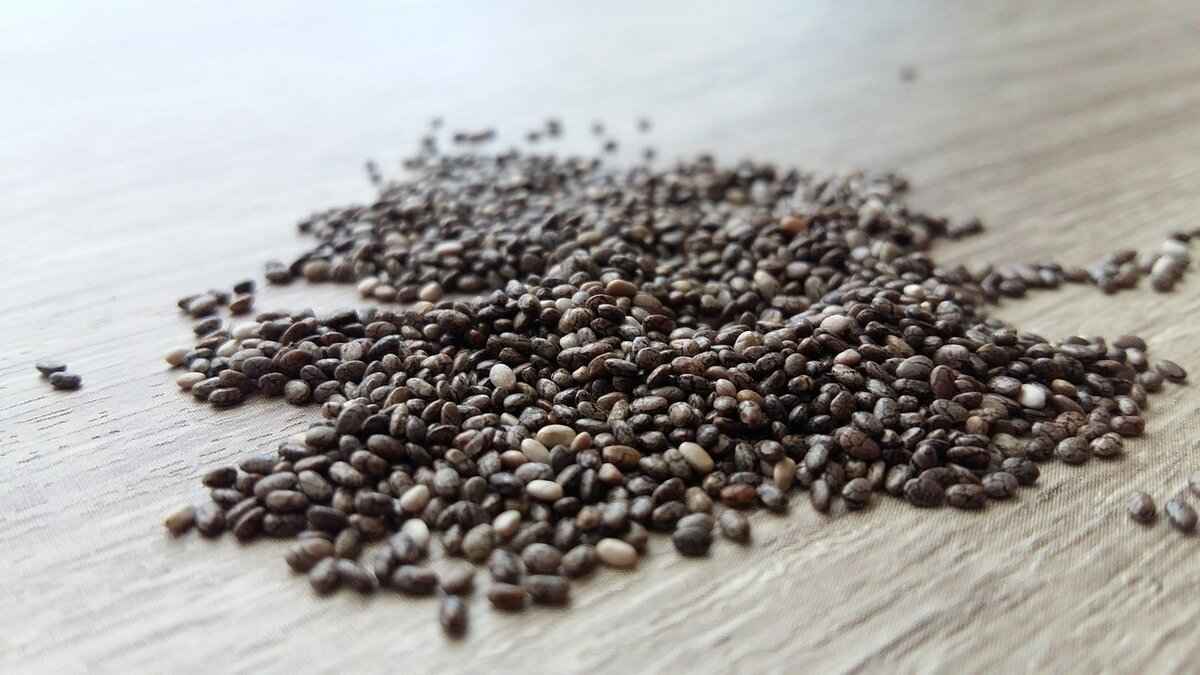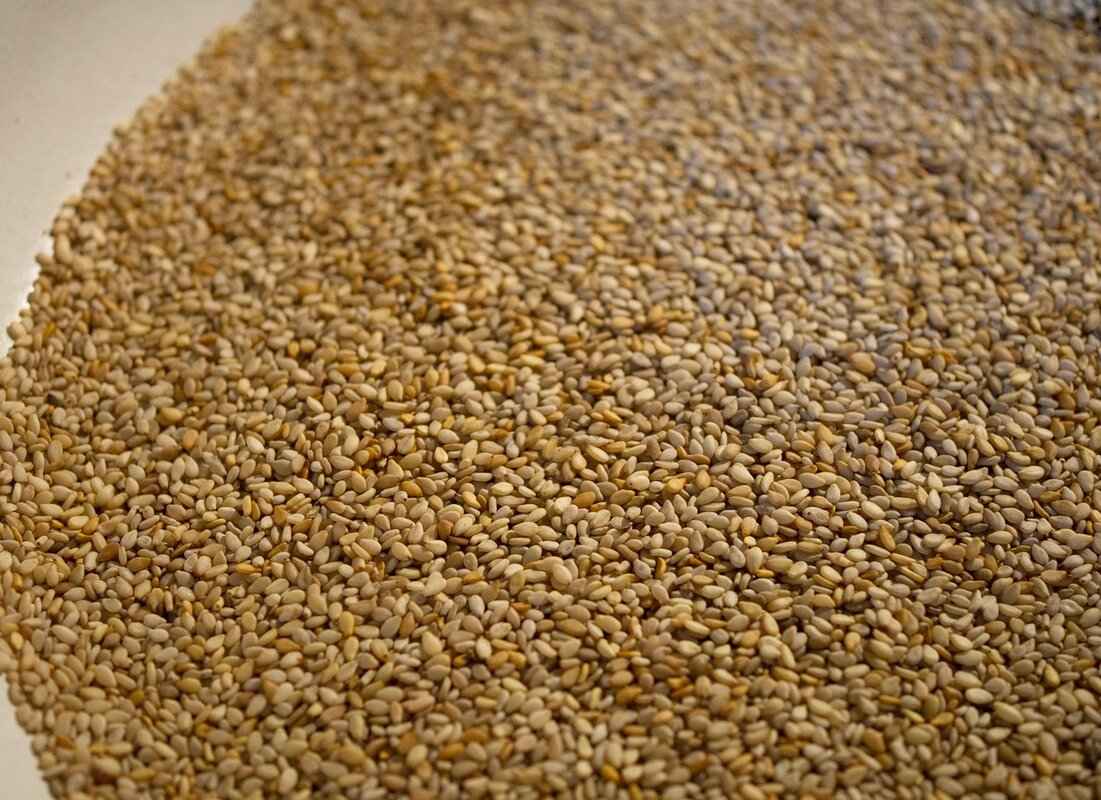This article delves into the numerous health benefits of chia seeds, providing a comprehensive examination of their nutritional profile, potential health effects, and the scientific research that supports their acclaim as a superfood. With increasing popularity, it’s essential to understand what makes these tiny seeds so beneficial.
Chia seeds are a powerhouse of essential nutrients. They are rich in omega-3 fatty acids, which are crucial for heart health, along with a high content of dietary fiber that aids digestion. Additionally, they provide a good source of protein, calcium, and various vitamins and minerals, making them a valuable addition to any diet.
Research suggests that chia seeds can significantly promote heart health. Their omega-3 fatty acids help lower cholesterol levels and reduce inflammation, which are both critical factors in preventing heart disease. A study published in the American Journal of Clinical Nutrition highlighted that regular consumption of chia seeds can lead to improvements in cardiovascular health markers.
Chia seeds are often recommended for those looking to manage their weight. Their high fiber content allows them to absorb water, swelling up to 12 times their weight. This property can promote feelings of fullness, potentially leading to reduced calorie intake. A study indicated that participants who included chia seeds in their diet experienced a greater sense of satiety, aiding in weight control.
The dietary fiber in chia seeds is vital for maintaining digestive health. It supports regular bowel movements and can help prevent constipation. Furthermore, a healthy fiber intake is linked to a healthier gut microbiome, which is essential for overall health.
Understanding appetite control is crucial for effective weight management. Chia seeds may help regulate hunger hormones, potentially improving satiety. This mechanism can be beneficial for those trying to reduce their caloric intake without feeling deprived.
While chia seeds offer numerous health benefits, some risks should be considered. Overconsumption can lead to digestive issues, such as bloating and gas, particularly if not enough water is consumed. Additionally, individuals on certain medications should consult with healthcare providers, as chia seeds can interact with blood thinners.
Chia seeds are often compared to other superfoods like flaxseeds and hemp seeds. While all these seeds offer unique benefits, chia seeds stand out due to their exceptional gel-forming ability when mixed with liquid, enhancing their versatility in various recipes.
The gel-forming property of chia seeds not only makes them a fantastic thickening agent but also allows them to be incorporated into numerous dishes, from smoothies to puddings. This unique characteristic enhances their nutritional delivery while adding texture.
Despite their many benefits, chia seeds may not be suitable for everyone. Individuals with allergies to sesame seeds or those with specific health conditions should approach with caution. Consulting a healthcare provider is advisable to ensure safe consumption.
Incorporating chia seeds into your meals is straightforward. They can be added to smoothies, sprinkled on salads, or mixed into yogurt. Here are some creative ways:
- Add chia seeds to your morning oatmeal for a nutrient boost.
- Use them as a thickening agent in soups or sauces.
- Create chia pudding by soaking them in almond milk overnight.
Chia seeds are an excellent choice for those following vegan or gluten-free diets. They provide a plant-based source of protein and can be used as an egg substitute in baking by mixing them with water, making them versatile for various dietary preferences.

What Nutrients Are Found in Chia Seeds?
Chia seeds have gained significant attention in recent years for their remarkable health benefits, largely due to their impressive nutritional profile. These tiny seeds, derived from the Salvia hispanica plant, are a powerhouse of essential nutrients that can contribute positively to your overall health. Below, we delve into the key nutrients found in chia seeds and their potential health benefits.
Chia seeds are packed with a variety of essential nutrients, making them a highly nutritious addition to any diet. Here are some of the key components:
- Omega-3 Fatty Acids: Chia seeds are one of the richest plant-based sources of omega-3 fatty acids, particularly alpha-linolenic acid (ALA). These healthy fats are known to support heart health by reducing inflammation and lowering cholesterol levels.
- Fiber: With about 11 grams of fiber per ounce, chia seeds are an excellent source of dietary fiber. This high fiber content helps to promote digestive health, regulate blood sugar levels, and enhance feelings of fullness, which can aid in weight management.
- Protein: Chia seeds contain approximately 4 grams of protein per ounce, making them a good plant-based protein source. This can be particularly beneficial for vegetarians and vegans looking to increase their protein intake.
- Vitamins and Minerals: Chia seeds are rich in various vitamins and minerals, including calcium, magnesium, phosphorus, and manganese. These nutrients play vital roles in bone health, energy production, and overall metabolic functions.
In addition to these primary nutrients, chia seeds also contain antioxidants, which help combat oxidative stress in the body. Antioxidants are essential for protecting cells from damage and may reduce the risk of chronic diseases.
Furthermore, chia seeds have a unique ability to absorb water and form a gel-like consistency. This property not only enhances their culinary versatility but also contributes to hydration and prolonged satiety, making them an excellent addition to smoothies, puddings, and baked goods.
In summary, the rich nutrient profile of chia seeds, including omega-3 fatty acids, fiber, protein, and essential vitamins and minerals, positions them as a valuable superfood. Incorporating chia seeds into your diet can provide numerous health benefits, supporting heart health, digestive wellness, and overall nutritional balance.

How Do Chia Seeds Benefit Heart Health?
Chia seeds are becoming increasingly popular in the health community, and for good reason. Research indicates that these tiny seeds may play a significant role in promoting heart health. They are rich in essential nutrients, particularly omega-3 fatty acids and dietary fiber, both of which contribute to cardiovascular wellness.
What Makes Omega-3 Fatty Acids Important for Heart Health?
Omega-3 fatty acids are known for their anti-inflammatory properties and their ability to improve heart health. Chia seeds contain alpha-linolenic acid (ALA), a type of omega-3 fatty acid that can help lower levels of bad cholesterol (LDL) while increasing levels of good cholesterol (HDL). This balance is crucial in reducing the risk of heart disease.
How Does Fiber Contribute to Heart Health?
In addition to omega-3s, chia seeds are an excellent source of dietary fiber. A high-fiber diet is linked to lower cholesterol levels and improved heart health. Fiber helps to bind with cholesterol in the digestive system, preventing its absorption into the bloodstream. This process can lead to a reduction in overall cholesterol levels, which is beneficial for maintaining a healthy heart.
Can Chia Seeds Help Reduce Inflammation?
Chronic inflammation is a contributing factor to many heart-related conditions. The omega-3 fatty acids in chia seeds can help combat inflammation by reducing inflammatory markers in the body. This reduction can lower the risk of heart disease and other related conditions, making chia seeds a valuable addition to a heart-healthy diet.
How Can You Include Chia Seeds in Your Diet?
- Sprinkle them on your morning oatmeal or yogurt.
- Add them to smoothies for a nutrient boost.
- Use them as a thickening agent in soups and sauces.
- Incorporate them into baked goods like muffins and bread.
Are There Any Risks to Consider?
While chia seeds offer numerous benefits, it is essential to consume them in moderation. Overconsumption can lead to digestive issues such as bloating and gas. Additionally, individuals on certain medications should consult with a healthcare provider, as chia seeds can interact with blood thinners due to their high omega-3 content.
Final Thoughts on Chia Seeds and Heart Health
Incorporating chia seeds into your diet can be an effective strategy for promoting heart health. Their rich content of omega-3 fatty acids and fiber, combined with their ability to reduce inflammation, makes them a powerful superfood. By understanding how to use chia seeds effectively, you can take proactive steps toward maintaining a healthy heart.
Can Chia Seeds Help with Weight Management?
Chia seeds have gained significant attention for their potential role in weight management. These tiny seeds are not only versatile but also packed with nutrients that can support a healthy lifestyle. In this section, we will delve into the reasons why chia seeds are often recommended for those looking to manage their weight.
High Fiber Content
One of the key attributes of chia seeds is their remarkable fiber content. Just two tablespoons of chia seeds contain approximately 11 grams of fiber, which is about one-third of the recommended daily intake. This high fiber content plays a crucial role in promoting feelings of fullness and satiety. When consumed, chia seeds absorb water and expand in the stomach, creating a gel-like substance that can help curb hunger and reduce the likelihood of overeating.
Water Absorption and Satiety
The ability of chia seeds to absorb water is particularly noteworthy. They can absorb up to 12 times their weight in liquid, which means that when they are consumed, they swell and take up space in the stomach. This process can lead to increased satiation, making it easier to resist the temptation of snacking between meals. By incorporating chia seeds into your diet, you may find that you feel fuller for longer periods, which can be beneficial for weight control.
Regulating Hunger Hormones
Chia seeds may also play a role in regulating hunger hormones. Research suggests that the consumption of fiber-rich foods can positively influence hormones such as ghrelin and leptin, which are responsible for signaling hunger and fullness, respectively. By helping to balance these hormones, chia seeds can assist in controlling appetite and reducing cravings, further supporting weight management efforts.
Low-Calorie and Nutrient-Dense
Another advantage of chia seeds is that they are low in calories yet high in essential nutrients. They are an excellent source of omega-3 fatty acids, protein, and various vitamins and minerals. This nutrient density means that you can enjoy the benefits of chia seeds without consuming excessive calories, making them an ideal addition to a weight management plan.
Versatile Culinary Uses
Incorporating chia seeds into your diet is easy due to their versatility. They can be added to smoothies, yogurt, oatmeal, or even baked goods. Their neutral flavor allows them to blend seamlessly into various dishes, making it simple to reap their benefits without altering the taste of your meals.
Considerations and Moderation
While chia seeds offer numerous benefits for weight management, it is essential to consume them in moderation. Overconsumption can lead to digestive issues, as the high fiber content may cause discomfort if introduced too quickly into the diet. It is advisable to start with a small amount and gradually increase intake to allow your digestive system to adjust.
In summary, chia seeds can be a valuable tool in your weight management journey. Their high fiber content, ability to absorb water, and nutrient density make them an excellent choice for promoting satiety and regulating appetite. By incorporating chia seeds into a balanced diet, you may find it easier to achieve and maintain your weight goals.
What Role Does Fiber Play in Chia Seeds?
Chia seeds are not only celebrated for their numerous health benefits but also for their impressive fiber content. In fact, these tiny seeds contain about 11 grams of fiber per ounce, making them a remarkable source of dietary fiber. This section will delve into the significance of fiber in chia seeds and how it plays a crucial role in promoting digestive health and enhancing the gut microbiome.
Understanding Dietary Fiber
Dietary fiber is a type of carbohydrate that the body cannot digest. Unlike other carbohydrates, fiber passes through the digestive system relatively intact, providing a range of health benefits. There are two main types of fiber: soluble and insoluble. Chia seeds contain both types, contributing to their effectiveness in supporting overall health.
- Soluble Fiber: This type of fiber dissolves in water, forming a gel-like substance in the digestive tract. It helps to slow down digestion, which can lead to improved satiety and better blood sugar control.
- Insoluble Fiber: This type adds bulk to the stool and aids in its passage through the intestines, preventing constipation and promoting regular bowel movements.
Supporting Digestive Health
The high fiber content in chia seeds is essential for maintaining a healthy digestive system. By incorporating chia seeds into your diet, you can experience enhanced bowel regularity, which is crucial for overall health. The soluble fiber in chia seeds absorbs water and expands in the stomach, promoting a feeling of fullness and helping to curb overeating.
Contributing to a Healthy Gut Microbiome
A healthy gut microbiome is vital for digestion, immune function, and overall well-being. The fiber in chia seeds acts as a prebiotic, providing nourishment for beneficial gut bacteria. This can lead to a balanced gut microbiome, which is associated with reduced inflammation and improved metabolic health.
Potential Health Benefits of Fiber from Chia Seeds
- Improved Digestive Function: Regular consumption of chia seeds can help prevent digestive issues such as constipation and bloating.
- Weight Management: The gel-like consistency of soluble fiber can promote satiety, helping individuals manage their weight more effectively.
- Blood Sugar Control: Fiber can help stabilize blood sugar levels by slowing the absorption of sugar in the bloodstream.
- Heart Health: A diet high in fiber is linked to lower cholesterol levels, contributing to better cardiovascular health.
Incorporating chia seeds into your diet can be simple and enjoyable. You can add them to smoothies, oatmeal, or yogurt, or use them in baking. The versatility of chia seeds makes it easy to reap their fiber benefits without sacrificing taste.
In conclusion, the fiber content in chia seeds plays a significant role in promoting digestive health and supporting a healthy gut microbiome. By including chia seeds in your diet, you can enjoy their numerous health benefits while enhancing your overall well-being.
Do Chia Seeds Affect Appetite Control?
Understanding appetite control is essential for effective weight management. Many individuals struggle with regulating their hunger, leading to overeating and weight gain. This section delves into the potential role of chia seeds in influencing hunger hormones and enhancing feelings of fullness.
Chia seeds are known for their remarkable ability to absorb water, swelling up to 12 times their weight when soaked. This property not only makes them a unique addition to various recipes but also plays a significant role in appetite suppression. When consumed, the expanded chia seeds create a gel-like substance in the stomach, which can delay gastric emptying. This means that food stays in the stomach longer, promoting a prolonged sensation of fullness.
Research indicates that chia seeds may positively influence hormonal responses related to appetite. Specifically, they can help regulate levels of ghrelin and leptin, two hormones crucial for hunger and satiety. Ghrelin, often referred to as the “hunger hormone,” signals the brain to increase appetite, whereas leptin helps to signal fullness. By potentially modulating these hormones, chia seeds may assist in maintaining a balanced appetite.
Moreover, the high fiber content of chia seeds contributes significantly to their appetite-controlling effects. With approximately 10 grams of fiber per ounce, chia seeds provide a substantial amount of dietary fiber, which is known to enhance satiety. Fiber-rich foods tend to be more filling, helping to reduce overall calorie intake throughout the day. This characteristic makes chia seeds an excellent choice for those looking to manage their weight effectively.
Incorporating chia seeds into your diet can be simple and enjoyable. They can be added to smoothies, yogurt, oatmeal, or even baked goods. By doing so, you not only enhance the nutritional profile of your meals but also take advantage of their appetite-regulating properties. For instance, a chia pudding made by soaking chia seeds in almond milk overnight can serve as a nutritious breakfast or snack, keeping you satisfied for hours.
However, it is essential to consume chia seeds in moderation. While they offer numerous health benefits, excessive intake can lead to digestive discomfort, particularly for those unaccustomed to a high-fiber diet. It is advisable to gradually introduce chia seeds into your meals and ensure adequate hydration to facilitate their digestion.
In summary, chia seeds appear to be a valuable ally in the quest for effective appetite control. Their unique ability to absorb water, combined with their high fiber content and potential hormonal benefits, makes them a worthy addition to any weight management strategy. By incorporating chia seeds into a balanced diet, individuals may find it easier to regulate their hunger and achieve their health goals.
Are There Any Risks Associated with Chia Seeds?
Chia seeds are often celebrated for their numerous health benefits, but it is essential to consider potential risks associated with their consumption. This section will explore various side effects and interactions that may arise from including chia seeds in your diet.
Digestive Issues
One of the most common concerns related to chia seeds is their high fiber content. While fiber is beneficial for digestion, an abrupt increase in fiber intake can lead to digestive discomfort. Individuals who are not accustomed to consuming high-fiber foods may experience symptoms such as:
- Bloating
- Gas
- Constipation
To minimize these effects, it is advisable to gradually introduce chia seeds into your diet and ensure adequate hydration, as chia seeds absorb a significant amount of water.
Choking Hazard
Chia seeds can absorb water and expand significantly. If consumed dry or without sufficient liquid, they may pose a choking hazard, especially for individuals with swallowing difficulties. It is crucial to soak chia seeds in water or incorporate them into smoothies or other moist foods before consumption.
Interactions with Medications
Chia seeds may interact with certain medications, particularly those that affect blood sugar levels and blood pressure. Their high omega-3 fatty acid content can also influence blood clotting. Individuals on blood-thinning medications or those with diabetes should consult a healthcare professional before adding chia seeds to their diet to avoid potential complications.
Allergic Reactions
Though rare, some individuals may experience allergic reactions to chia seeds. Symptoms can include:
- Rashes
- Itching
- Swelling
If you suspect an allergy, it is essential to discontinue use and consult a healthcare provider.
Caloric Density
While chia seeds are nutrient-dense, they are also calorie-dense. Overconsumption can lead to an excess calorie intake, potentially negating weight management efforts. Moderation is key when incorporating chia seeds into your diet.
Conclusion
While chia seeds offer numerous health benefits, it is crucial to be aware of the potential risks. By understanding these side effects and interactions, individuals can make informed decisions about incorporating chia seeds into their diet. As with any dietary change, consulting a healthcare professional is recommended, especially for those with pre-existing health conditions or concerns.

How Do Chia Seeds Compare to Other Superfoods?
Chia seeds have gained immense popularity in recent years, often hailed as a superfood. In this section, we will explore how they compare to other well-known superfoods, particularly flaxseeds and hemp seeds. By examining their nutritional profiles, we can uncover the unique benefits that chia seeds offer.
Chia seeds are a powerhouse of nutrients. They contain an impressive amount of omega-3 fatty acids, which are essential for heart health. In fact, chia seeds have one of the highest plant-based sources of these fatty acids, surpassing both flaxseeds and hemp seeds. In addition to omega-3s, chia seeds are rich in fiber, providing about 10 grams per ounce. This high fiber content helps promote digestive health and can aid in weight management by enhancing feelings of fullness.
While both chia and flaxseeds are excellent sources of omega-3 fatty acids, they differ in some key areas. Flaxseeds are known for their high lignan content, which has antioxidant properties. However, chia seeds have the advantage of being more versatile in cooking. They can absorb up to 12 times their weight in water, forming a gel-like consistency that can be used in various recipes, from puddings to smoothies.
Hemp seeds are another popular superfood, known for their complete protein profile. They contain all nine essential amino acids, making them an excellent choice for vegetarians and vegans. However, chia seeds provide a greater amount of fiber and are lower in calories, making them a better option for those looking to manage their weight. Additionally, chia seeds are easier to incorporate into meals, as they do not require grinding like flaxseeds.
- Hydration: The gel-forming ability of chia seeds helps maintain hydration, making them an ideal choice for athletes.
- Versatility: Chia seeds can be added to a variety of dishes, including smoothies, salads, and baked goods.
- Vitamins and Minerals: Chia seeds are also a good source of calcium, magnesium, and phosphorus, contributing to overall health.
One of the standout features of chia seeds is their high fiber content. They contain both soluble and insoluble fiber, which aids in digestion and promotes a healthy gut microbiome. The soluble fiber in chia seeds forms a gel-like substance in the stomach, which can slow digestion and help regulate blood sugar levels. This property is particularly beneficial for individuals looking to manage their weight or blood sugar levels.
While chia seeds offer numerous health benefits, it’s essential to consume them in moderation. Overconsumption can lead to digestive issues due to their high fiber content. Additionally, individuals on blood-thinning medications should consult their healthcare provider, as chia seeds can interact with these medications due to their omega-3 fatty acid content.
In summary, chia seeds stand out among superfoods for their unique combination of nutrients and health benefits. While they share similarities with flaxseeds and hemp seeds, their versatility, hydration properties, and high fiber content make them an exceptional choice for those seeking to enhance their diet.
What Makes Chia Seeds Unique?
Chia seeds have gained immense popularity in recent years, often hailed as a superfood due to their impressive nutritional profile and health benefits. One of the most remarkable features that sets chia seeds apart from other seeds is their unique gel-forming ability when mixed with liquid. This property not only enhances their versatility in various recipes but also contributes to their numerous health benefits.
When chia seeds are soaked in liquid, they can absorb up to 12 times their weight in water. This results in the formation of a thick gel-like substance. This gel-forming ability is attributed to the soluble fiber present in the seeds, specifically a type called mucilage. This mucilage forms a gel when it comes into contact with water, creating a unique texture that can be used in a variety of culinary applications.
The gel produced by chia seeds can be utilized in numerous ways, making them a versatile ingredient in cooking and baking. Here are some creative uses:
- Thickening Agent: Chia gel can be used to thicken smoothies, soups, and sauces, providing a nutrient boost without altering the flavor.
- Egg Substitute: For those following a vegan diet, chia seeds can serve as an egg replacement. Mixing one tablespoon of chia seeds with three tablespoons of water creates a gel that mimics the binding properties of eggs in baking.
- Healthy Pudding: Chia pudding is a popular dish made by combining chia seeds with milk or a milk alternative. The seeds absorb the liquid, creating a creamy, pudding-like consistency that can be flavored with fruits, spices, or sweeteners.
- In Baked Goods: Adding chia seeds to muffins, breads, and cookies not only enhances texture but also boosts the nutritional content.
The gel-forming ability of chia seeds offers several health benefits:
- Improved Hydration: The gel helps retain moisture in the digestive system, which can aid in hydration and promote better digestion.
- Weight Management: The gel expands in the stomach, contributing to a feeling of fullness and potentially helping with weight control.
- Blood Sugar Regulation: The slow digestion of the gel can help stabilize blood sugar levels, making it a suitable option for those managing diabetes.
While chia seeds offer numerous benefits, it’s essential to consume them in moderation. Overconsumption may lead to digestive discomfort due to their high fiber content. Additionally, those with certain health conditions, such as esophageal disorders, should consult a healthcare professional before incorporating chia seeds into their diet.
Incorporating chia seeds into your daily diet is simple and enjoyable. Here are some practical tips:
- Add chia seeds to your morning smoothie for an extra nutrient boost.
- Mix chia gel into yogurt or oatmeal for added texture and health benefits.
- Experiment with chia seed recipes like puddings or energy bars to explore their culinary potential.
In summary, the unique gel-forming ability of chia seeds not only enhances their versatility in various recipes but also contributes to their health benefits. Whether you are looking to boost your nutrition, manage your weight, or simply enjoy a delicious and healthy meal, chia seeds are an excellent choice.
Are Chia Seeds Suitable for Everyone?
Chia seeds have gained immense popularity in recent years, often hailed as a superfood due to their numerous health benefits. However, it is essential to recognize that not everyone may benefit from chia seeds. This section will explore various dietary considerations, including allergies and individual health conditions that may influence their consumption.
Potential Allergies and Sensitivities
Some individuals may experience allergies to chia seeds, although such cases are relatively rare. Symptoms can include itching, swelling, or digestive discomfort. If you have a history of allergies to similar seeds, such as flaxseeds or sesame seeds, it’s advisable to consult a healthcare professional before incorporating chia seeds into your diet.
Digestive Issues
Chia seeds are high in fiber, which can be beneficial for digestion. However, for those with irritable bowel syndrome (IBS) or other gastrointestinal disorders, consuming chia seeds may exacerbate symptoms. It is crucial to introduce them gradually into the diet and monitor how your body reacts. For individuals who struggle with fiber intake, chia seeds can be a double-edged sword, potentially leading to bloating or gas if consumed in excess.
Medication Interactions
Chia seeds may interact with certain medications, particularly those that affect blood pressure or blood sugar levels. The seeds can act as a natural blood thinner due to their high omega-3 fatty acid content. Therefore, individuals on anticoagulant medications should approach chia seed consumption with caution and consult their healthcare provider for personalized advice.
Pregnancy and Breastfeeding Considerations
For pregnant or breastfeeding women, chia seeds can be a nutritious addition to the diet, providing essential nutrients. However, it is crucial to consume them in moderation. Overconsumption may lead to digestive discomfort or interfere with nutrient absorption. Consulting a healthcare provider is advisable to ensure a balanced approach.
Individual Health Conditions
Certain health conditions may require individuals to limit or avoid chia seeds. For those with kidney issues, the high phosphorus content in chia seeds could pose a risk. Similarly, individuals with a history of gastroesophageal reflux disease (GERD) may find that chia seeds exacerbate their symptoms. Always consult with a healthcare professional to evaluate your specific health needs.
Conclusion
In summary, while chia seeds offer numerous health benefits, they are not universally suitable for everyone. Factors such as allergies, digestive issues, medication interactions, pregnancy, and individual health conditions should be carefully considered. If you are unsure about incorporating chia seeds into your diet, it is always best to seek guidance from a healthcare provider.

How Can You Incorporate Chia Seeds into Your Diet?
Incorporating chia seeds into your meals is not only simple but also a delightful way to enhance your diet with their numerous health benefits. These tiny seeds are incredibly versatile and can be added to a variety of dishes, making it easy to include them in your daily routine. Below are some practical tips and delicious recipes to help you enjoy the health benefits of chia seeds every day.
- Breakfast Boost: Start your day with a nutritious breakfast by adding chia seeds to your smoothies or oatmeal. They not only enhance the nutritional value but also add a delightful crunch.
- Baking Addition: Incorporate chia seeds into your favorite baked goods. They work wonderfully in muffins, breads, and pancakes, providing a boost of fiber and omega-3 fatty acids.
- Salad Enhancer: Sprinkle chia seeds over salads for an added texture. They can absorb the dressing, making every bite flavorful.
- Thickening Agent: Use chia seeds as a natural thickener in soups and sauces. When mixed with liquid, they form a gel-like consistency, perfect for enhancing the texture of your dishes.
- Snack Time: Create a healthy snack by mixing chia seeds with yogurt or cottage cheese. Add fruits and nuts for a wholesome treat.
Here are a few scrumptious recipes that showcase the versatility of chia seeds:
Chia Seed Pudding:Ingredients:- 1/4 cup chia seeds- 1 cup almond milk (or any milk of choice)- 1-2 tablespoons sweetener (honey, maple syrup, or agave)- Fresh fruits and nuts for toppingInstructions:1. In a bowl, mix chia seeds, almond milk, and sweetener.2. Stir well and let it sit for 5 minutes, then stir again to prevent clumping.3. Refrigerate for at least 2 hours or overnight.4. Top with fresh fruits and nuts before serving.
Chia Seed Smoothie:Ingredients:- 1 banana- 1 cup spinach- 1 tablespoon chia seeds- 1 cup almond milk- 1 tablespoon peanut butter (optional)Instructions:1. Blend all ingredients until smooth.2. Pour into a glass and enjoy a nutrient-packed smoothie.
Chia seeds are an excellent choice for those following vegan and gluten-free diets. They are naturally gluten-free and can be used as an egg substitute in vegan recipes. To replace one egg, mix 1 tablespoon of chia seeds with 2.5 tablespoons of water and let it sit for about 15 minutes until it forms a gel-like consistency.
Incorporating chia seeds into your meals is not only easy but also a delicious way to enhance your diet. With their versatility, you can enjoy the health benefits of chia seeds in various forms, from puddings and smoothies to baked goods and salads. Experiment with different recipes and find your favorite ways to include these nutrient-dense seeds in your daily meals.
What Are Some Creative Ways to Use Chia Seeds?
Chia seeds are not only nutritious but also incredibly versatile, making them a fantastic addition to a variety of dishes. Below are some creative ways to incorporate chia seeds into your meals, enhancing both flavor and health benefits.
- Boost Your Smoothies: Chia seeds can be easily added to smoothies for a nutrient boost. They absorb liquid and expand, creating a thicker texture. Simply add a tablespoon of chia seeds to your favorite smoothie recipe. For an extra twist, let them soak in the liquid for about 10 minutes before blending.
- Add to Baked Goods: Incorporating chia seeds into baked goods like muffins, bread, or pancakes is a great way to enhance their nutritional profile. You can substitute some flour with ground chia seeds or add whole seeds for a delightful crunch. They work particularly well in recipes that require moisture, as they help retain it.
- Chia Pudding: One of the most popular ways to enjoy chia seeds is by making chia pudding. Combine chia seeds with your choice of milk (dairy or plant-based), sweetener, and flavorings like vanilla or cocoa. Let it sit in the fridge overnight, and you’ll have a delicious and filling breakfast or snack ready to go!
- In Salads: Sprinkle chia seeds over salads for added texture and nutrition. They can be used as a topping or mixed into dressings. Their nutty flavor complements a variety of salad ingredients, making them a perfect addition to both leafy greens and grain-based salads.
- Energy Bars and Snacks: Chia seeds can be a key ingredient in homemade energy bars or snack bites. Combine them with oats, nuts, dried fruits, and a binding agent like nut butter or honey. Form into bars or balls and refrigerate for a quick, on-the-go snack.
- Soups and Stews: Add chia seeds to soups and stews as a thickening agent. They will absorb the liquid and create a heartier texture without altering the flavor. This is an excellent way to boost the fiber content of your meals.
- In Breakfast Cereals: Enhance your morning oatmeal or cereal by mixing in chia seeds. They add a satisfying crunch and additional nutrients. You can also prepare overnight oats with chia seeds for a quick and nutritious breakfast option.
- Homemade Jam: Use chia seeds to make a healthy, no-cook jam. Combine mashed fruit with chia seeds and a sweetener of your choice. Let it sit for a few hours, and the chia seeds will absorb the liquid, creating a gel-like consistency that resembles traditional jam.
These are just a few ideas to get you started on incorporating chia seeds into your diet. Their ability to absorb liquid and form a gel makes them a unique ingredient that can enhance both the nutritional value and texture of various dishes. Whether you are looking to boost your smoothies, create healthy snacks, or enhance your meals, chia seeds are a fantastic choice!
Can Chia Seeds Be Used in Vegan and Gluten-Free Diets?
Chia seeds have gained popularity as a superfood, largely due to their nutritional benefits and versatility. They are an excellent addition to various dietary preferences, particularly for those following vegan and gluten-free lifestyles. This article will delve into how chia seeds seamlessly integrate into these diets, providing essential nutrients and culinary flexibility.
For individuals adhering to a vegan diet, incorporating adequate sources of protein and omega-3 fatty acids is crucial. Chia seeds stand out as a plant-based source of both. They contain approximately 4 grams of protein and 5 grams of omega-3 fatty acids per ounce, making them a valuable addition to meals. Furthermore, chia seeds are rich in fiber, which supports digestive health—a key concern for many vegans.
For those with gluten intolerance or celiac disease, finding nutritious and safe food options can be challenging. Chia seeds are naturally gluten-free, providing a safe alternative for individuals avoiding gluten. They can be used as a thickening agent or binder in recipes, replacing gluten-containing ingredients in many dishes.
Chia seeds are not just a source of protein and omega-3s; they are also packed with essential vitamins and minerals such as calcium, magnesium, and iron. These nutrients contribute to overall health and well-being, making chia seeds a powerhouse for anyone, especially those on restrictive diets.
- Chia Pudding: Combine chia seeds with almond milk and let them soak overnight for a nutritious breakfast or snack.
- Smoothies: Add a tablespoon of chia seeds to your favorite smoothie for an extra nutrient boost.
- Baking: Use chia seeds as an egg substitute by mixing one tablespoon of chia seeds with three tablespoons of water, allowing it to gel before adding to recipes.
- Salads: Sprinkle chia seeds on salads for added texture and nutrition.
While chia seeds are generally safe for most individuals, it is important to consume them in moderation. Their high fiber content can lead to digestive discomfort if consumed in excess. It is advisable to start with a small amount and gradually increase intake, ensuring adequate hydration. Additionally, those with specific health conditions should consult a healthcare provider before making significant dietary changes.
The unique property of chia seeds is their ability to absorb liquid and form a gel-like consistency. This characteristic allows them to be used creatively in various recipes, enhancing both texture and nutritional value. Whether you are making a vegan smoothie or a gluten-free dessert, chia seeds can be a game-changer.
In conclusion, chia seeds are an excellent choice for individuals following vegan and gluten-free diets. Their rich nutritional profile, versatility in recipes, and ability to provide essential nutrients make them a valuable addition to any meal plan. By incorporating chia seeds, you can enjoy the health benefits while adhering to your dietary preferences.
Frequently Asked Questions
- What are the health benefits of chia seeds?
Chia seeds are loaded with nutrients! They are rich in omega-3 fatty acids, fiber, protein, and various vitamins and minerals. These components support heart health, aid digestion, and may even help with weight management.
- How can I incorporate chia seeds into my diet?
Incorporating chia seeds into your meals is super easy! You can add them to smoothies, sprinkle them on salads, mix them into yogurt, or use them in baking. They also work well in puddings and as a thickening agent in sauces.
- Are there any side effects of consuming chia seeds?
While chia seeds are generally safe, consuming them in excessive amounts can lead to digestive issues like bloating or gas. It’s also important to drink plenty of water, as they absorb liquid and can expand in your stomach.
- Can chia seeds help with weight loss?
Absolutely! The high fiber content in chia seeds can help you feel full longer, which may reduce overall calorie intake. Plus, their gel-forming ability when mixed with liquid can create a satisfying texture in meals.
- Are chia seeds suitable for everyone?
Most people can enjoy chia seeds, but those with certain allergies or digestive conditions should consult a healthcare professional. If you’re unsure, it’s always best to start with small amounts to see how your body reacts.














